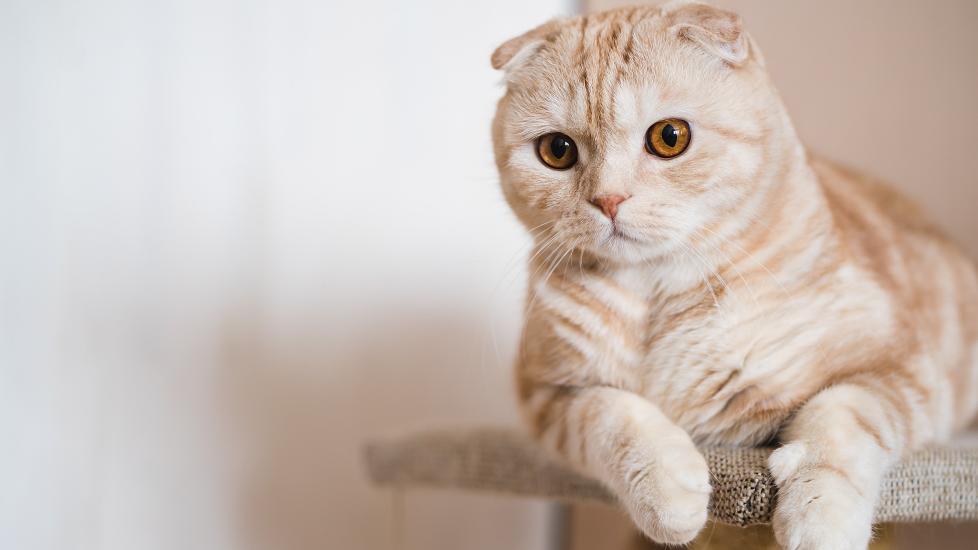Introduction:
The Scottish Fold is a unique cat breed known for its distinctive folded ears that give it a charming, owl-like appearance. This breed has become increasingly popular due to its adorable looks and affectionate personality.
History and Origin:
The Scottish Fold was first discovered in 1961 on a farm near Perthshire, Scotland. The genetic mutation responsible for the fold ear trait was found in a single kitten named Susie who gave birth to other kittens with similar ears. Breeders worked to develop this new trait into a distinct breed, which gained recognition from major cat registries around the world.
Physical Characteristics:
One of the most noticeable features of the Scottish Fold is its ears, which are medium in size and have a forward-folding structure due to an abnormal cartilage formation. This gives them a round shape and creates a flatter face profile compared to many other cat breeds. Scottish Folds can be long or semi-long haired and come in a variety of colors and patterns. Their eyes are large and expressive, adding to their irresistible appeal.
Temperament and Personality:
Scotland Folds are generally friendly, sociable cats that enjoy being part of family life. They are often described as gentle and loving pets that get along well with children and other animals. These felines tend to form strong bonds with their human companions and can be quite loyal.
Care Requirements:
Because of their folded ears, Scottish Folds require special attention to prevent the accumulation of dirt and wax buildup inside the ear folds. Regular cleaning with a soft cloth or cotton ball dampened with warm water helps maintain good hygiene. Additionally, they need regular grooming to keep their coats in top condition if they have longer hair varieties.
Health Considerations:
There are some health concerns associated with the Scottish Fold breed. Some studies suggest that excessive folding may lead to joint issues such as arthritis later in life. It’s important to ensure that reputable breeding programs are used when selecting a Scottish Fold kitten to minimize these risks. Other common health problems include eye conditions like progressive retinal atrophy (PRA), which can lead to vision loss over time.
Living Environment:
Due to their social nature and adaptability, Scottish Folds can thrive in both apartments and larger homes. However, they do appreciate having access to high places where they can survey their surroundings and take naps out of reach of wandering feet.
Conclusion:
The Scottish Fold is a delightful companion that offers not only visual charm but also a pleasant demeanor. Prospective owners should research reputable breeders committed to producing healthy kittens while ensuring proper care and maintenance throughout the cat’s lifetime.
